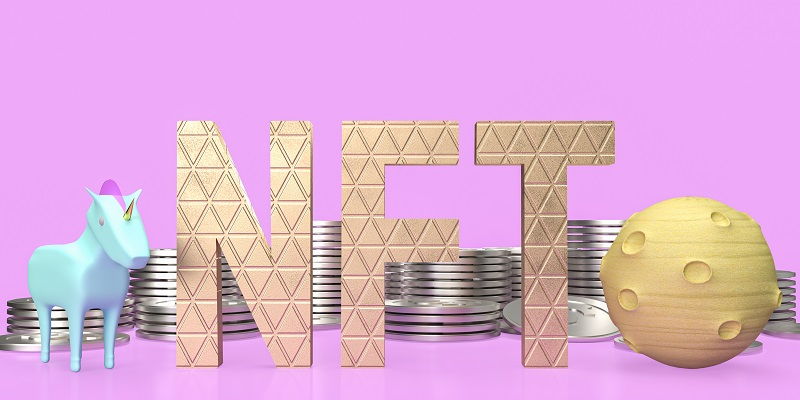In today’s rapidly evolving digital landscape, the concept of asset tokenization has gained significant traction. Tokenizing real-world assets involves converting physical assets into digital tokens on a blockchain, enabling these assets to be represented, traded, and transferred with ease. The Boston Consulting Group estimates that this emerging industry has the potential to reach a staggering $16 trillion in value in the coming years. This article delves into the world of asset tokenization, exploring its potential and the benefits it can bring to various industries.
The Potential of Tokenizing Real-World Assets
The Boston Consulting Group’s estimation highlights the immense potential of tokenizing real-world assets. By leveraging blockchain technology, assets that were traditionally illiquid and restricted to a select few can become easily accessible and divisible. This has the potential to revolutionize industries such as real estate, agriculture, and even art, unleashing a new era of liquidity and financial innovation.
Benefits of Asset Tokenization
As asset tokenization gains momentum, several compelling benefits are being realized across different sectors.
In traditional agricultural practices, farmers often face delays in receiving payouts for their crops. However, by tokenizing agricultural assets, such as harvested crops, farmers can receive their payments immediately after the harvest. This eliminates the financial hardships they may face during the waiting period and ensures a more equitable distribution of wealth.
Traditional insurance companies are recognizing the advantages of embracing on-chain solutions for policy management. By tokenizing insurance policies, these companies can streamline their processes, enhance transparency, and reduce costs. Additionally, tokenization allows for the creation of innovative insurance products tailored to specific needs and risks.
Asset tokenization has the potential to bridge the wealth distribution gap by providing access to financial products previously unavailable to most individuals. Through fractional ownership, tokenization enables a wider range of people to invest in high-value assets, such as real estate and artwork. This democratization of capital empowers individuals to participate in investment opportunities previously reserved for the elite.
Tokenization also enables the democratization of capital by opening up investment opportunities to a broader range of participants. Tokens can be easily transferred and traded, allowing individuals from around the world to invest in assets that were once geographically limited. This not only provides investors with greater liquidity but also facilitates global financial inclusion.
Range of Assets for Tokenization
The beauty of asset tokenization lies in its versatility. Almost any tangible asset can be tokenized, bringing traditional financial instruments into the digital realm.
Real estate, typically a high-value and illiquid asset, stands to benefit greatly from tokenization. By dividing a property into tokens, ownership and investment opportunities can be easily facilitated, thus increasing liquidity and reducing barriers to entry for potential investors.
Tokenization is not limited to physical property; even living organisms and their associated value can be tokenized. For instance, Carlos Mazzi shared his experience of tokenizing a cattle ranch in Bolivia. By representing the value creation from grass to cash through tokens, investors can participate in the ranch’s profitability without needing direct physical ownership.
Tokenization extends well beyond tangible assets, providing a gateway for traditional financial instruments, securities, and even intellectual property to be represented on the blockchain. This brings transparency and efficiency to markets previously restricted by intermediaries and lengthy settlement processes.
Tokenization Challenges and Solutions
Despite its promising potential, the adoption of asset tokenization has been slower than anticipated, primarily due to systemic issues.
While the benefits of asset tokenization are clear, market adoption has been hindered by factors such as regulatory uncertainties and limited awareness. However, as the understanding of blockchain technology and its potential grows, these challenges are likely to be overcome.
The widespread adoption of central bank digital currencies (CBDCs) has the potential to propel asset tokenization forward. CBDCs would create millions of people with digital wallets, effectively providing an infrastructure for digital asset tokenization. This would eliminate barriers to entry, enhance liquidity, and foster a more inclusive and accessible financial ecosystem.
The proliferation of CBDCs and digital wallets would create a vast user base poised to interact with tokens on a daily basis. This increased exposure and familiarity would further normalize the use of tokens for various financial transactions, solidifying their position as a mainstream form of exchange.
The Future of Tokenization
Looking ahead, it is expected that in ten years’ time, most people will interact with tokens on a daily basis, whether they realize it or not. Tokenization will become an integral part of our financial fabric, driving innovation and unlocking opportunities previously inaccessible to many.
As blockchain technology continues to mature, the integration of asset tokenization into various sectors will become increasingly prevalent. From real estate transactions to agricultural investments, tokens will facilitate faster, more secure, and cost-effective transactions.
With the growth of decentralized finance (DeFi) and the integration of tokens into everyday finance, individuals will interact with tokens without consciously recognizing their presence. This seamless integration will bolster the efficiency and accessibility of financial systems, ultimately further democratizing wealth.
Asset tokenization represents a paradigm shift in finance, offering unprecedented opportunities and benefits to a wide range of industries. By bridging the gap between traditional assets and the digital world, tokenization leverages blockchain technology to empower individuals, enhance liquidity, and democratize capital. As adoption hurdles are overcome and central bank digital currencies become more prevalent, tokenization will undoubtedly shape the future of finance, transforming the way we transact, invest, and redistribute wealth.

